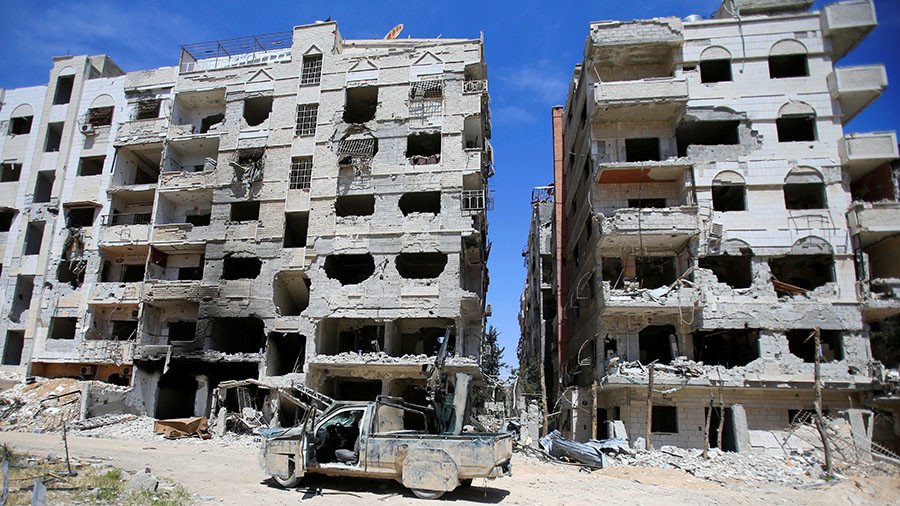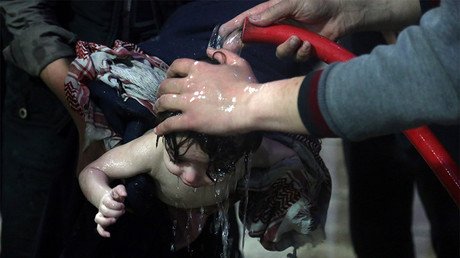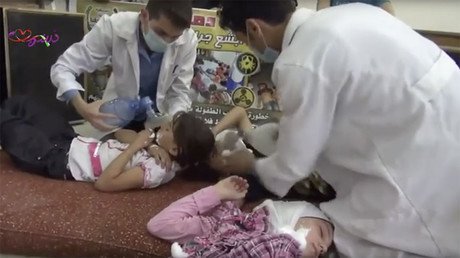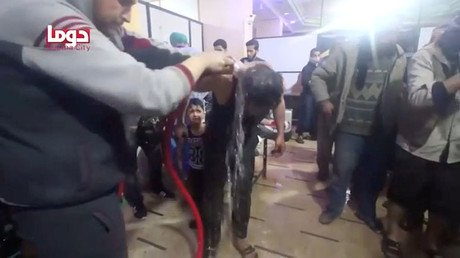'Oxygen starvation, not gas’: Veteran UK reporter Fisk doubts MSM narrative on Douma ‘chem attack’

Veteran UK reporter Robert Fisk went to Syria’s Douma and heard that residents shown in notorious “gas attack footage” actually suffered from oxygen loss due to hiding in trash-filled shelters, and not from chemicals.
If you feel overwhelmed by MSM coverage of the “chemical attack” in Douma, here’s your voice in the wilderness. Robert Fisk, a veteran UK foreign correspondent with the Independent, and one of the few Western reporters to have interviewed Osama bin Laden, went to Douma to go beyond what the Western media portrayed in early April as the “Bashar Assad regime’s chemical attack.”
Fisk’s thought-provoking piece is centered around the witness accounts of Assim Rahaibani, a 58-year-old local doctor who told him that patients caught in the heart-wrenching video – the one claiming to show the aftermath of the alleged chemical weapons attacks in Douma – did not actually suffer from any toxins.
They were “overcome not by gas but by oxygen starvation” because they had to live in rubbish-filled underground shelters in order to survive the perils of fighting. The doctor told the Independent reporter that on the night of April 7, when the alleged attack supposedly took place, “there was wind and huge dust clouds began to come into the basements and cellars where people lived.”
Patients began to arrive in his subterranean hospital suffering from hypoxia and oxygen loss, Dr Rahaibani continued. “Then someone at the door, a ‘White Helmet’, shouted “gas!” and a panic began. People started throwing water over each other.” He added: “Yes, the video was filmed here, it is genuine, but what you see are people suffering from hypoxia – not gas poisoning.”
The footage in question was posted on YouTube on the day of the alleged chemical attack. Shortly after, graphic images purporting to show the horrific consequences of the attack began flooding social media. Though there may have been inconsistencies within the video and the images themselves, they were widely reported by Western media outlets which were quick to put the blame on the Syrian government.
The US and its allies the UK and France cited the purported gas attack in Douma as the pretext for military action against Syria that saw over 100 cruise missiles pounding Syrian civilian and military targets on April 14.
However, in the war-ravaged town of Douma, people seemed unable to link the alleged chemical incident and the US-led air assaults, Fisk writes.
READ MORE: 'US knew there were no toxins & risked nothing' – chemical experts on Syria strike
“Oddly, after chatting to more than 20 people, I couldn’t find one who showed the slightest interest in Douma’s role in bringing about the Western air attacks,” he notes. “Two actually told me they didn’t know about the connection.”
Fisk says people in Douma were happy to see foreigners among them, and were willing to talk about other things. They told him of “the Islamists under whom they had lived,” and of militants who “had stolen civilian homes to avoid the Syrian government and Russian bombing.”
“How could it be that Douma refugees who had reached camps in Turkey were already describing a gas attack which no one in Douma today seemed to recall?” he asks in conclusion, adding that news would have spread incredibly slowly among residents who were so isolated from each other.
Think your friends would be interested? Share this story!















